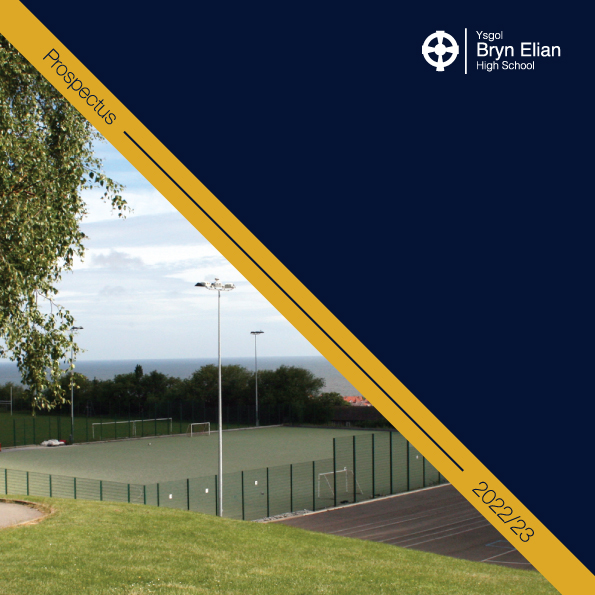Introduction to Department
The Additional Learning Needs department works in partnership with outside agencies to provide additional support to learners with learning differences. In accordance with the Special Educational Needs Code of Practice for Wales (WAG, 2002), the department aims at enabling learners with Additional Learning Needs (ALN) to reach their full potential, to be included fully in their school communities and make a successful transition to adulthood.
In view of the new ALN & Education Tribunal Bill being introduced in 2020, the department have adopted a pupil centred approach to support. This means that parents and learners are involved in reviewing provision. The Bill will introduce a new statutory framework for supporting children and young people with additional learning needs.
The Bill will replace existing legislation surrounding special educational needs and young people with learning difficulties and/or disabilities who are in post-16 education and training.
The New ALN & Education Tribunal Bill sets out three overarching objectives for the proposed new system:
A unified legislative framework to support children and young people aged 0-25 with ALN in schools and further education (as opposed to the current system for SEN which goes up to age 16)
An integrated, collaborative process of assessment, planning and monitoring with early, timely and effective interventions (including duties on health boards and local authorities to collaborate with each other to meet a child or young person’s ALN through an Individual Development Plan)
A fair and transparent system for providing information and advice, and for resolving concerns and appeals (including requiring local authorities to make arrangements for avoiding and resolving disagreements, revising a system described by previous reviews as ‘complex, bewildering and adversarial’)
The department comprises two inclusion facilities. The Individual Support Base, which is a Local Authority managed resource base, and the Learning Zone, which welcomes learners placed on school interventions (literacy, numeracy, social communication skills).
For more information about the ALN & Education Tribunal Bill please see the Gov Wales website.
Staffing & Responsibilities
Staff MemberDepartmental ResponsibilityAdditional ResponsibilityDr. A. McCormack-ColbertAdditional Learning Needs Co-ordinatorResearch AssociateMrs C. PlattSpecialist Teacher in Charge of the Individual Support BaseMrs E. DingsdaleSpecialist Dyslexia TeacherMrs S. McAllisterSpecialist Teaching AssistantMrs D. MorrisSpecialist Teaching AssistantMrs N. BeckerSpecialist Teaching AssistantMrs A. GarnerSpecialist Teaching AssistantAbout KS3
Learning Zone
Learners who may require additional support are identified at the transition from primary to secondary school, when they join from other schools, through the school’s assessment procedures or as a result of teacher referral.
Several interventions are available to learners who are placed on School Action in KS3:
Literacy support
Numeracy support
Speech and language support
Social and Emotional communication skills
The Individual Support Base
The ISB is a Local Authority funded resource base that allows learners to be integrated in a mainstream school environment with support from specialist teachers and teaching assistants. Learners follow individual educational plans and are taught English, Mathematics and Welsh in the ISB. Learners attend mainstream lessons with support from teaching assistants. Learners also have the opportunity to attend social use of language sessions, which aim at helping them develop their emotional and social communication skills. The ISB implements a range of strategies and resources to help students engage and achieve their potential.
Unstructured time
In addition to the academic support offered in the two inclusion facilities, we welcome learners at break times and lunchtimes. We have an open door policy and have our own Reading Garden. The garden is a quiet, fenced off area where learners can read, play board games and have their lunch with their friends. Learners can also eat their lunch, do their homework and sit with their friends in the Learning Zone every day at break times and lunchtimes. Members of staff on duty supervise learners daily. The Reading Garden project was funded by the school Parent Teacher Association and Happy Faces, a local charity.
About KS4
At KS4 (SA) the form of support available changes and aims at enabling learners to leave school with qualifications so that they are ready to meet real life challenges:
WJEC English Entry Level course (ISB only)
AQA Entry Level Maths (ISB & Learning Zone)
Study skills (ISB & Learning Zone)
Succeeding with Education, Employment & Training (SWEET-ISB & Learning Zone)
What is SWEET?
SWEET is a ‘learning and skills development programme’ offering a specialist BTEC Level 1 or 2 qualification in Personal & Social Development (PSD).
SWEET is well placed to respond to many of the recommendations published in the Welsh Government's "Successful Futures", a review of the school curriculum.
A Specialist BTEC Level 1 & 2 IVET qualification in Personal & Social Development.
No Examination – Portfolio based personalised approach to learning.
Performance PointsLevel 1 & 2 ThresholdGCSE EquivalentLevel 1: Award12.5 Points10% (Level 1)Half (D - G)Level 1: Certificate25.0 Points20% (Level 1)Full (D - G)Level 2: Award23.0 Points10% (Level 1 & 2)Half (A* - C)Level 2: Certificate46.0 Points20% (Level 1 & 2)Full (A* - C)Any other information
There are good links with all support services, including the Local Authority Additional Learning Needs Advisory Service.
The Educational Psychology Service is managed by the Local Authority. The delegated Educational Psychologist, Mr Michael Duke, visits the school when learners are referred as part of the staged assessment process. This is after the completion of a consultation form drawn up by the County Psychology Service.
The school has excellent links with the Sensory Impaired service in the county, with Mr Boothby visiting as and when required.
Ms F Hughes is the Educational Welfare Officer at the school. Learners are referred through the staged assessment process and relevant forms completed first.
The school has links with Conwy Social Inclusion Service and Social Services.
Other outside agencies involved with the school are Careers Wales and the English as an Additional Language Service.

Changing the world, one site at a time…


